The best fish oil supplements to protect your heart and boost your wellbeing
We've tested the best fish oil supplements to give you an omega-3 boost and improve your health

James Frew

Start your week with achievable workout ideas, health tips and wellbeing advice in your inbox.
You are now subscribed
Your newsletter sign-up was successful
Taking one of the best fish oil supplements can be a great way to boost your intake of essential fatty acids, omega-3, and fat-soluble vitamins A and D.
Omega-3 specifically is mostly found in certain types of fish, but if you don't enjoy eating fish or can't hit the recommended portion a week, then you can use the best fish oil supplements to stay topped up instead.
To help you find one that you'll find easy to make part of your daily routine, we've tested a range of fish oil supplements, assessing the shape, smell, taste, and whether they're easy to swallow.
There are two forms of omega-3 — EPA and DHA. If you're looking for a specific combination of the two, we've highlighted the split for each supplement to make it easier to find the right fish oil supplement for your needs.
The best fish oil supplements you can buy right now
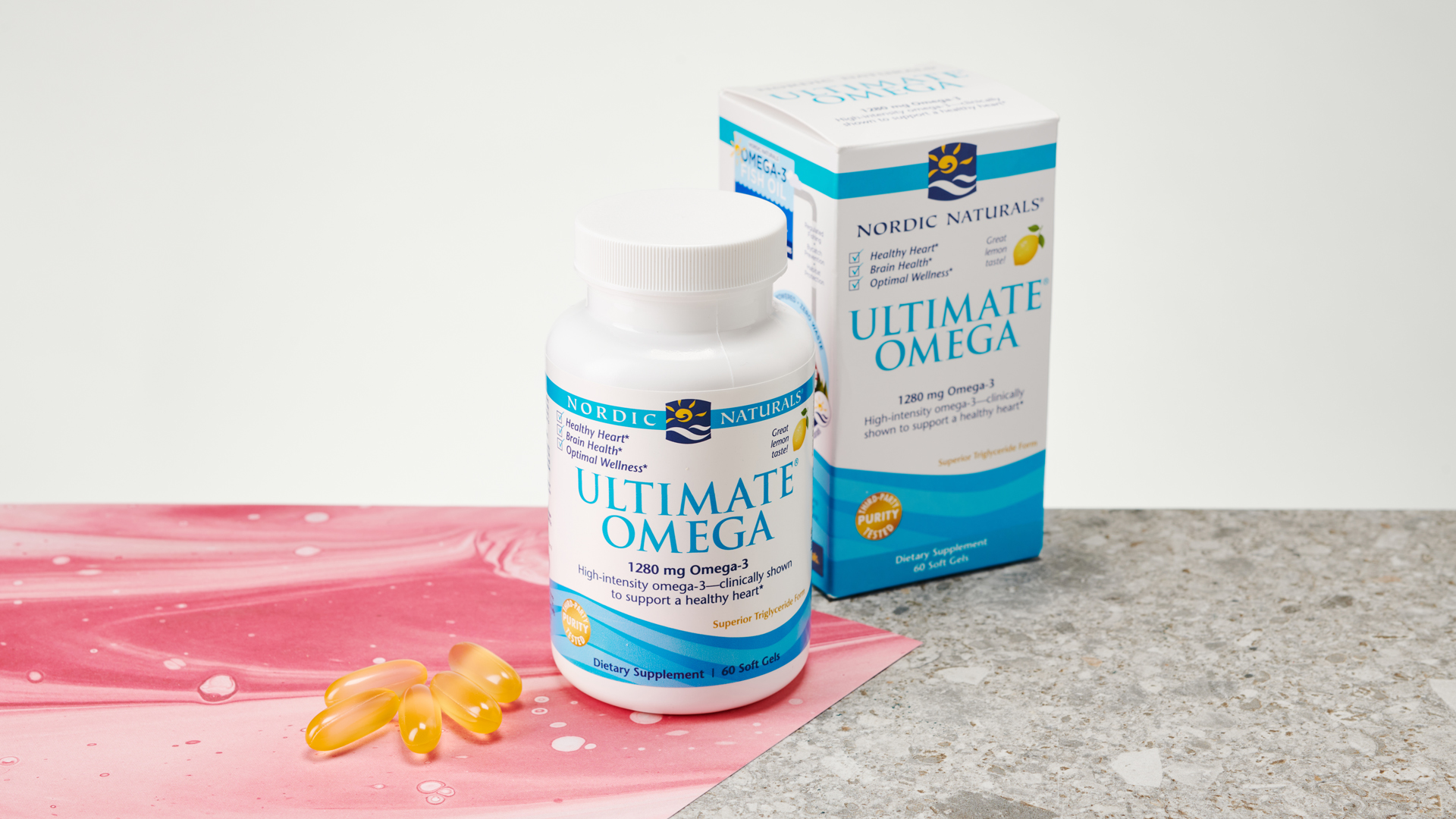
1. Nordic Naturals Ultimate Omega
Specifications
Reasons to buy
Reasons to avoid
The Nordic Naturals Ultimate Omega offer the best combined EPA/DHA dose for your money, packing 1,100mg into a two-capsule serving. The soft gel capsules have a slight lemon flavor (which we quite enjoyed) and no fishy aftertaste.
The capsules are on the larger side, so they're not ideal if you have trouble swallowing, but there is a liquid-only version with 2,470mg of omega-3 available to take alone or mix into your meals.
And if you're worried about how Nordic Naturals sources its oils, the company states it uses only wild-caught sardines and anchovies and its fishing methods are certified by Friends of the Sea for sustainability.
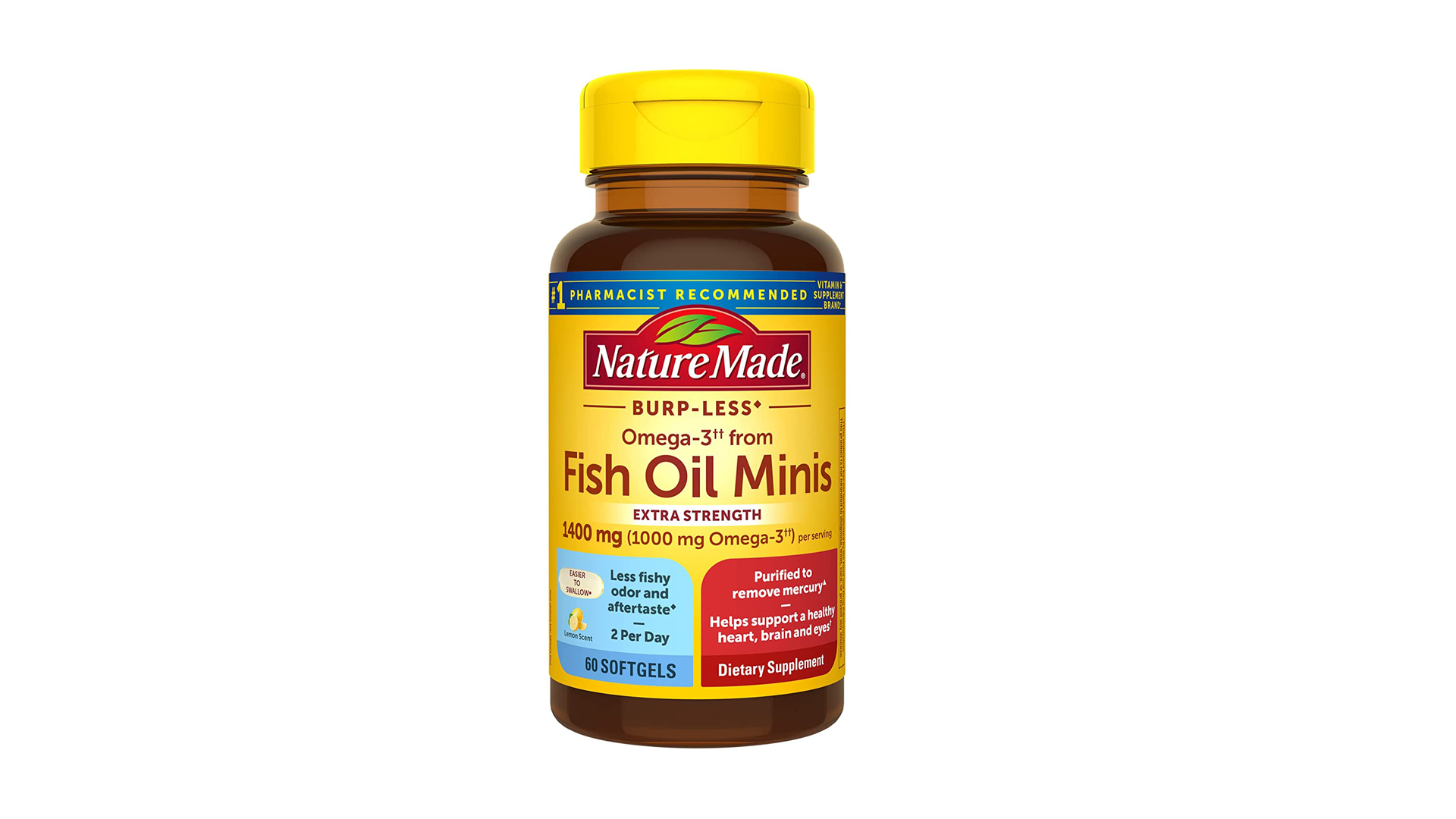
2. Nature Made Omega-3 From Fish Oil Minis
Specifications
Reasons to buy
Reasons to avoid
The Nature Made Omega-3 From Fish Oil Minis are a great option if you want to protect your wallet and your heart. Each serving contains 930mg of combined EPA/DHA at a fraction of the cost of Nordic Naturals or HUM Nutrition.
The company says that it uses wild ocean fish rather than source oil from industrial farming, but we couldn't find any sustainability certificates for their processes. However, the capsules are only 1-inch long, so were easy to take and there was no fishy aftertaste either.
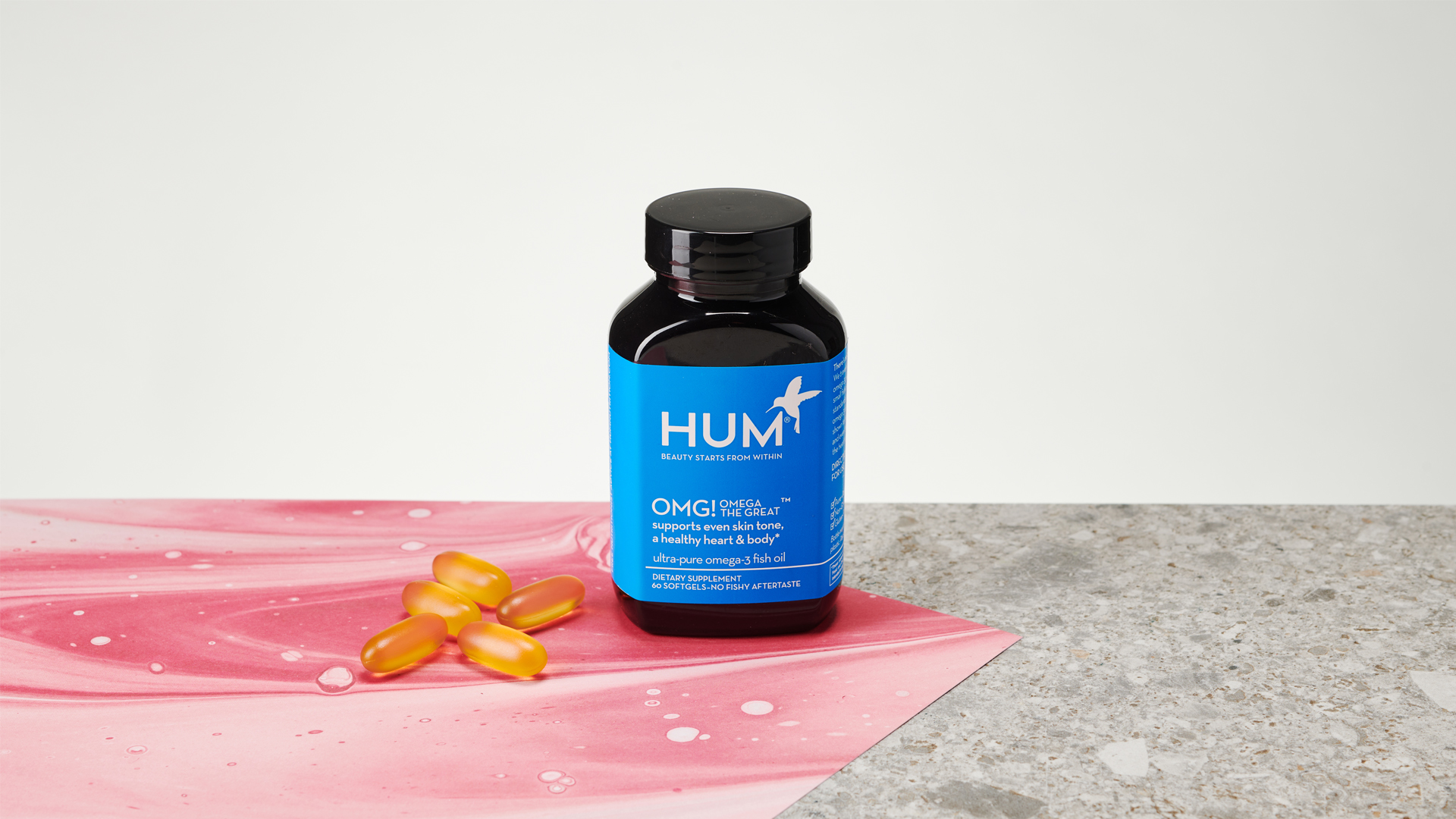
3. HUM Nutrition OMG! Omega the Great Supplement
Specifications
Reasons to buy
Reasons to avoid
The HUM Nutrition OMG! Omega the Great Supplement has a sizeable dose of EPA and DHA, totalling 1,200mg per serving. The soft gel capsules are enriched with vitamin E to support your skin and are gluten-free.
We were surprised at the large capsule size, and they are harder than you'd expect for something labelled 'soft gel'. Despite this, we found them easy to swallow with a faint lemony aftertaste that wasn't unpleasant.
While the fish oils here are extracted from sustainably-sourced anchovies, the capsules have a hefty price, coming it an almost $30 per bottle, which should last you 30 days, working out to a $1 a day.
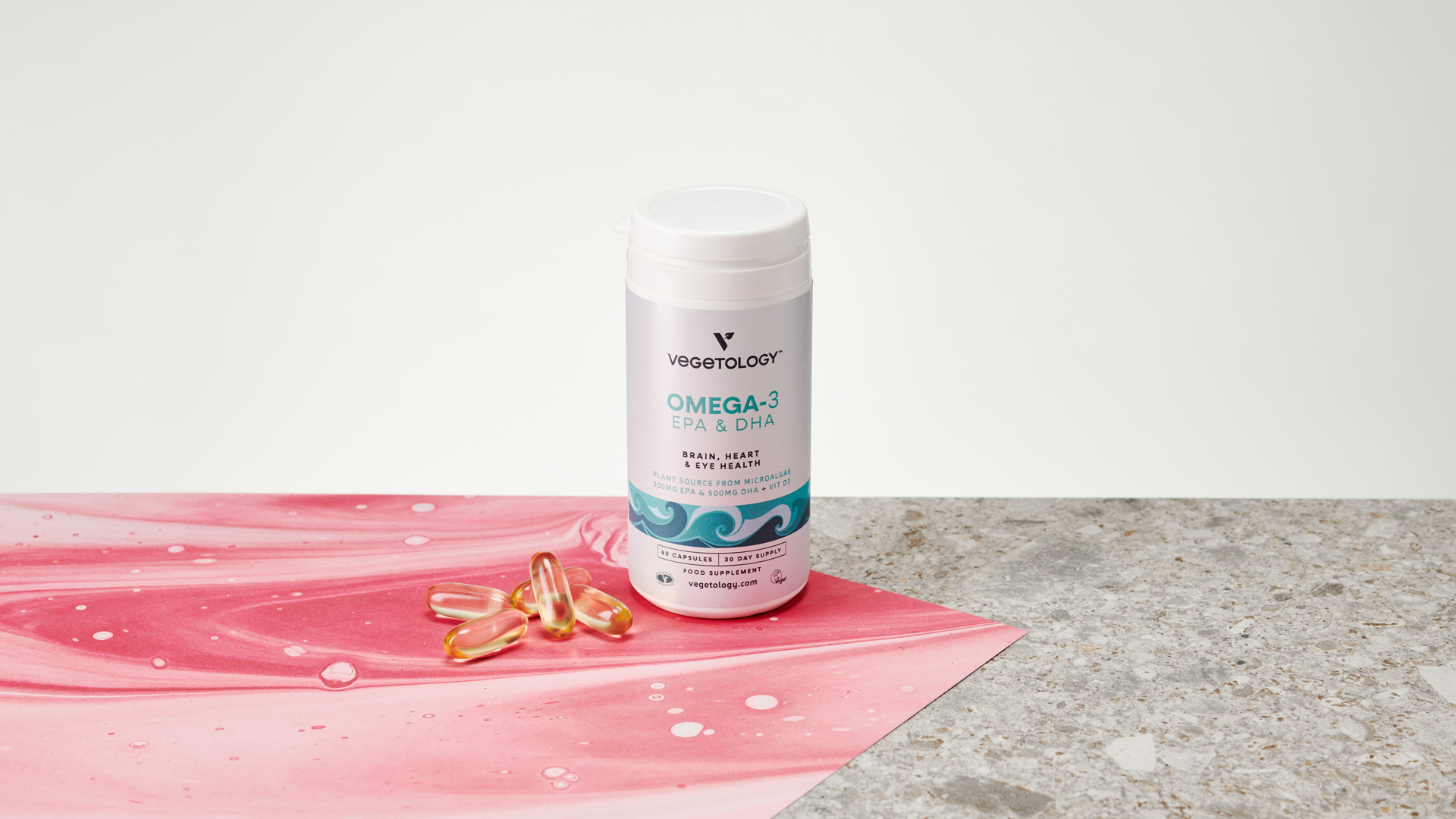
4. Vegetology Vegan Omega 3
Specifications
Reasons to buy
Reasons to avoid
The Vegetology Vegan Omega 3 contains a good level of EPA and DHA fatty acids, especially compared to other vegan-friendly options. There's also a small plant-based dose of vitamin D3, which can be hard to come by in a vegan diet.
However, it's two-capsule serving, so this 60-capsule container will only last 30 days, making it an expensive option. That said, the omega-3 is sourced from sustainable algae and the capsules are pregnancy-safe too.
We found the capsules easy to swallow and completely tasteless. If you'd rather not take them like this, you can pierce the capsule and pour the liquid onto a spoon or put into your food, although it is a bit fiddly.
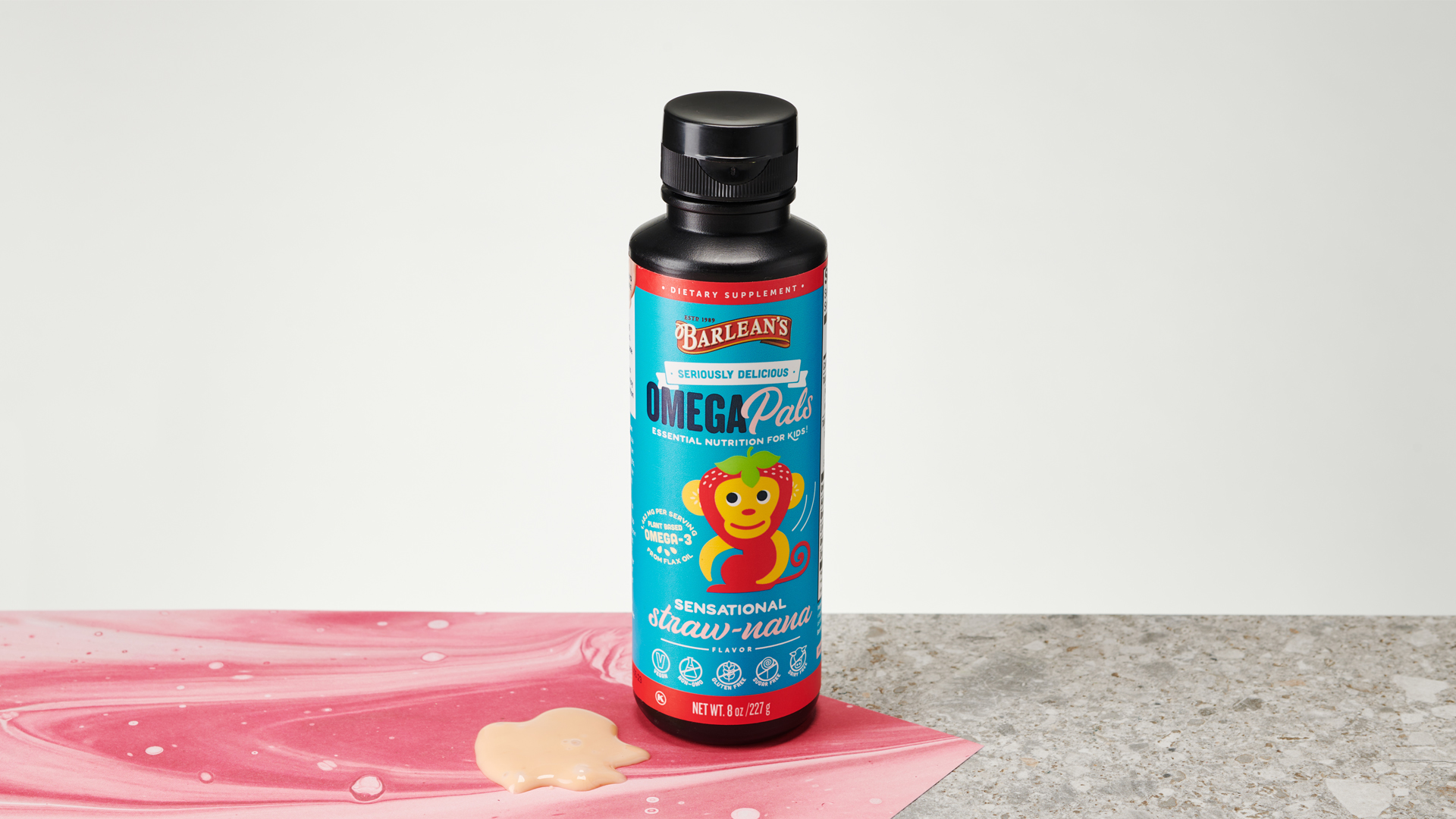
5. Barlean's Omega Pals
Specifications
Reasons to buy
Reasons to avoid
Children aren't always keen to take tablets, which is why the Barlean's Omega Pals supplement comes in liquid form. There are four flavors to choose from, including lemonade and tangerine, so you can find one they actually enjoy the taste of.
There's a 750mg dose of EPA/DHA per 1.5 teaspoon serving, which you can take alone or mix into yogurts, desserts, or other foods. We liked the straw-nana flavor the best, as it didn't have a fishy aftertaste and would suit adults too.
How to choose the best fish oil supplements
The first thing to look out for is the amount of EPA and DHA in each supplement. the combined EPA and DHA should be 500mg or more to see the benefits. Some manufacturers say that their capsules are 'ultra-strength' but this is generally a marketing claim.
However, they do sometimes bundle omega-3 and omega-6, but omega-6 is common in many foods, so unless you've been advised to increase your intake, you're probably better sticking with healthy omega-6 foods instead.
It's also crucial to choose a supplement form you'll be happy to take each day — you can find the best fish oil supplements as tablets, capsules, or liquids. But also note the recommended dose; some are one capsule per day, while others suggest up to four.
How we test the best fish oil supplements
The effects of a supplement depend on your body's needs, so instead of testing the long-term benefits of fish oil supplements, we've tested each tablet or capsule based on what it's like to take it each day.
We check to see how many capsules you need to take, and compare that against how many are in a pack to see if it's good value for money. We also consider whether the supplement is suitable for all diets, including for vegans.
If you're not a fan of difficult to swallow pills, we take each of the best fish oil supplements to see if they are easy to swallow, flavorless, or have a strange aftertaste.
FAQs
What is fish oil good for?
According to the American Heart Association, you should aim to eat two portions of oily fish each week to get enough omega-3 in your diet. If you can't hit that goal, then it's worth adding fish oil supplements to your routine.
- Mental health
Fish oil supplements contain fat-soluble vitamin D, which has been linked in multiple studies to improved mental health, as seen in the Journal of Clinical Medicine. Additionally, omega-3 intake was linked to a 20% reduction in anxiety when compared to subjects taking a placebo in a randomized controlled trial reported in Brain, Behaviour, and Immunity
- Eye health
Fish oil supplements derived from fish liver (such as cod liver oil) tend to contain significant amounts of vitamin A. This vitamin is essential for eye health, and a deficiency of vitamin A in your diet can lead to night blindness, as seen in a review in Progress in Food & Nutrition Science.
- Reduces inflammation
A review in International Immunology indicates that omega-3 plays an important role in controlling inflammation within the body. Inflammation may not seem like a problem, but chronic inflammation can damage healthy cells and tissues, leading to further complex health issues.
- Heart health
According to a study published in the journal Nutrients, omega-3 can help promote 'good' cholesterol, which can protect your heart and reduce the risk of heart disease.
However, according to a Cochrane review on omega-3, there's not enough evidence to show that taking the nutrient will definitely prevent long-term cardio health issues.
Should you take fish oil or omega-3?
Fish oil supplements contain omega-3, but omega-3 supplements don’t necessarily contain fish oil. There are 3 types of omega-3: DHA and EPA come primarily from fish, while ALA comes primarily from plant sources.
Some brands of omega-3 supplements use a marine algae derivative, which makes them suitable for vegans and vegetarians, who wouldn’t be able to take a fish oil supplement due to their dietary restrictions.
When comparing omega-3 supplements with seafood, the National Center for Complementary and Integrative Health recommends that eating seafood might be the better option than taking an omega-3 supplement.
This is because you get other nutritional benefits, like protein, minerals, and vitamins. So, eating omega-3 foods is generally preferable to an omega-3 supplement. And the best fish oil supplements offer a more well-rounded range of vitamins then omega-3 capsules alone.
What is fish oil good for?
According to registered dietician Roxana Ehsani, fish oil supplements can be helpful in addition to a balanced diet. "Fish oil supplements provide you with omega-3 fatty acids, essential fats we can only get from your diet or capsules," she explains.
"Our bodies don't naturally produce omega-3 fats, but research has found that high doses of omega-3s can reduce levels of triglycerides [a type of fat that can cause heart disease]. Plus, studies have found that fish oil supplements may also relieve symptoms of arthritis."
Research in the journal Nutrients indicates that consuming omega-3 fatty acids may reduce the risk of cognitive decline, dementia, and Alzheimer's, so adding a supplement to your diet may help to boost brain health.
And if you're generally active but want to stave off long-term muscle soreness, "consuming omega-3-rich foods as they can help reduce muscle pain and inflammation in the body," Ehsani adds.

Roxana Ehsani is a certified specialist in sports dietetics and a former spokesperson for the Academy of Nutrition and Dietetics. She holds a Bachelor of Science in Human Nutrition, Foods, and Exercise from Virginia Tech and a Master of Science in Clinical Nutrition and Dietetics from the University of Pittsburgh.
Who shouldn't take fish oil?
While fish oil supplements are generally ok for most people to take, if you have an allergy to fish or shellfish or are on a plant-based diet, it might be worth considering alternatives to the best fish oil supplements.
Fish oil supplements are derived from the tissues of fatty fish such as tuna, mackerel, or herring, and often the soft shell of capsules is made from fish gelatin, none of which are suitable for vegetarians or vegans.
"If you are taking blood clotting medicine, you should check with your medical provider," advised Ehsani. Although that's true of most supplements — you should talk things over with your doctor before adding any medication or supplements into your diet.
Start your week with achievable workout ideas, health tips and wellbeing advice in your inbox.
Claire is a freelance health, fitness and food journalist who has written for titles including Women’s Health, Top Santé, Woman & Home, Feel Good You, the Telegraph and Independent. She has a passion for being outside in nature and you’re more likely to find her walking in the woods or joining an exercise class in the park than pounding a treadmill in the gym. She also has a special interest in nutrition and healthy eating, having previously been Food Editor at Top Santé magazine. Her top fitness tip? Take your exercise outdoors wherever possible. It has been shown to boost the physical as well as mental health benefits of a workout and also to make you more likely to want to do it again!
- James FrewFitness Editor
